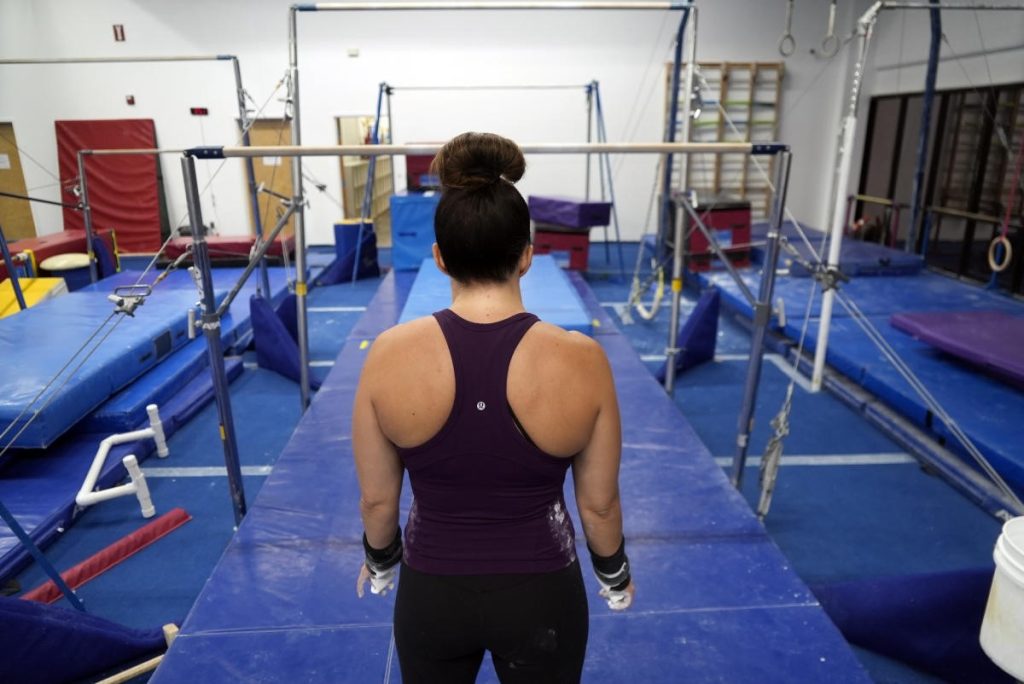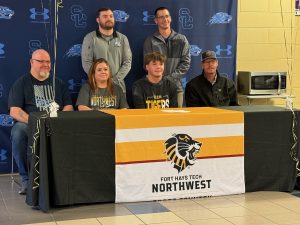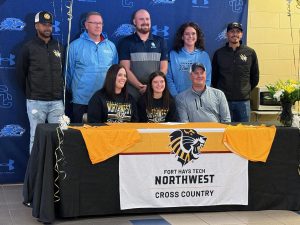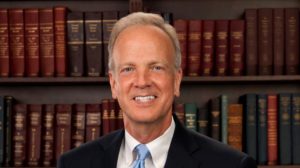The careers of Olympians like Simone Biles mirror the rise of adult gymnastics. ‘I’m never leaving.’

Angela Fuller, 44, trains at 5280 Gymnastics, Wednesday, July 24, 2024, in Littleton, Colo. (AP Photo/Brittany Peterson)
By WILL GRAVES AP National Writer
Every few years when the Olympics would roll around, the unmistakable pangs Jen Castellano knew were coming but was powerless to stop would hit.
Of chalk on her hands. The beam underneath her feet. The sounds and smell of a packed gym. The intoxicating mix of frustration, determination and joy while trying to master a new skill.
Only, as her 20s turned into her 30s, the director of investment operations at a firm in Raleigh, North Carolina, felt she had nowhere to go to turn those pangs into something tangible.
“I never thought I would do gymnastics again,” Castellano said.
Then, in the summer of 2021, she watched Simone Biles (23 at the time) and 33-year-old mother of two Chellsie Memmel compete at the U.S. championships. Castellano soon found herself on a website ordering a couple of leotards.
Not long after the Tokyo Olympics, inspired by what she’d watched, Castellano summoned the courage to visit Triumph Gymnastics in Cary, North Carolina, the rare gym that offered adult classes. She quickly discovered those familiar pangs were not unique to her.
The demographics surrounding the sport are shifting, and not just at the elite level, where Biles and the oldest women’s team the U.S. has ever sent to the Olympics — the aptly nicknamed “ Golden Girls ” — returned to the top of the podium in the team final on Tuesday night.
On Thursday, Biles will try to become the oldest Olympic all-around champion in 72 years. Her stiffest competition figures to come from 25-year-old Brazilian Rebeca Andrade in an event that also includes Ellie Black of Canada and Filipa Martins of Portugal, both 28.
Their longevity is reflective of a global movement of a sport long considered the realm of the very young. Not so much anymore, as doors long thought shut have swung back open.
A rising tide
Participation in adult gymnastics — from former competitors like Castellano who returned after a long hiatus to novices trying to get the hang of a forward roll — is soaring.
The National Association of Intercollegiate Gymnastics Clubs serves as a landing spot for gymnasts over 18 at the non-elite, non-NCAA level. While the majority of its membership consists of college students who compete as part of a club, it also offers a “non-student” division, meaning anyone at any age can compete at one of its meets, including its national championships.
NAIGC executive director Ilana Shushansky estimates that 20% of the participants at nationals earlier this year in Albuquerque, New Mexico, registered as “non-students.” It’s a percentage Shushansky believes will continue to rise, fueled in part by former gymnasts rediscovering — and in many cases redefining — their relationship with the sport that drew them in as kids only to seemingly abandon them as young adults.
“This is allowing them to meet the sport on their terms,” Shushansky said.
That’s the way it is for many of those who have made their way to one of the adult camps hosted by Memmel, who retired for good in 2021 and now serves as the co-lead for the USA Gymnastics women’s national team when she’s not running the gym she and her father, Andy, run in Wisconsin.
Memmel’s mission
Memmel wasn’t trying to prove a point when she came out of retirement in 2021. She did anyway. Messages of support poured into her social media accounts as other 30 and 40-somethings latched onto her journey.
The comments often included a common refrain, some version of “hey, we want to get back into gymnastics, too, but how do we do it?”
“It’s that unfinished business,” said 44-year-old Angela Fuller, who like Castellano quit in her teens only to feel the itch to return while watching Memmel in 2021 and now competes at 5280 Gymnastics outside Denver. “It’s that dangling carrot. We needed someone to lead the way and show us that it’s possible and that’s what Chellsie Memmel did for gymnastics.”
In the summer of 2022, Memmel opened registration for an adults-only camp. She hoped 40 people would sign up. Within hours she had to cap enrollment at 75 out of fear she couldn’t find enough coaches to handle the workload.
Now several times a year athletes from their 20s to their 50s with various levels of experience — and in the case of some, none at all — spend a weekend at a camp led by an Olympic medalist who has become a touchstone for a movement.
While Memmel sees it as a way of giving back, selfishly there’s something in it for her, too. The vibe in the camps are a stark contrast to the culture at the elite level she grew up in, in the best way possible.
“This fills up my cup so much,” said Memmel, whose most recent camp in June had 90 participants. “Their energy, enthusiasm, love for the sport. When we have new coaches come in, they’re just like in awe of the gymnasts, the camaraderie and all of the support they give each other.”
Reaching critical mass
Gina Paulhus’ expectations were low when she began running a website and created the Facebook group “ Aging Like Fine Wine ” centered on giving adult gymnasts a place where they could connect to the sport and each other.
The group now boasts more than 13,000 members. The website — which has the phrase “this sport is not just for kids anymore!” in all caps on the front page — offers training videos, forums and ways for interested athletes to find classes or a team.
Paulhus also runs an adults-only camp in Portsmouth, New Hampshire. Back in 2015, she believed hers was the only camp of its kind. Now there are more than 30, not to mention hundreds of meets across the country every year that are open to athletes over 18.
“I think it’s one of those cases where ‘monkey see, monkey do’ and now it’s sort of reached this critical mass,” she said.
Things are evolving so rapidly that it’s becoming apparent that supply is struggling to keep up with demand.
Memmel says the feedback she hears most often at camps comes from those who essentially coach themselves back at their home gyms because there is no one to fill the void.
One of the biggest issues is insurance. Policies to cover adult classes are substantially more expensive than ones that cover children because of the risk of injury, leading some gym owners to shy away from the opportunity.
That didn’t stop Debra Bell when she and her husband opened Triumph Gymnastics, where Castellano trains. One of their main tenets was creating a space where adults could come because, as the former competitive gymnast pointed out, “for some of us, it never leaves you.”
A lifelong love affair
It never did for Castellano, who briefly got into coaching during college before immersing herself in the corporate world.
She believes she is better now at 34 than she was as a teenager, even if her training looks far different than it did two decades ago. She’s at the gym for an hour on Tuesdays and Thursdays and two hours on Sundays. It’s not just her schedule that’s changed. Her mindset has, too.
“When I got back into it, I didn’t take it for granted at all because I knew what it was like to not have gymnastics in my life,” she said.
It’s a common refrain among her peers. They’re not doing this because their parents signed them up. Most of them have families and careers. Their relationship with the sport has evolved from something they are to something they do, a critical shift.
Fuller spent decades bothered by both an ankle injury from the balance beam and the constant sense she needed to excel to earn validation from her parents.
It’s not that way anymore. She is part of an adult team at 5280 that boasts more than 40 members. She travels all over the world competing, sometimes in both men’s and women’s events.
Occasionally she’ll receive notes of encouragement from young girls who see the mother of two teenage sons do her thing and realize their love of doing gymnastics doesn’t need an expiration date.
“They tell me ‘I can do this at your age,'” Fuller said. “’I can do this forever.’ … And that’s great. Because I’m never leaving.”







